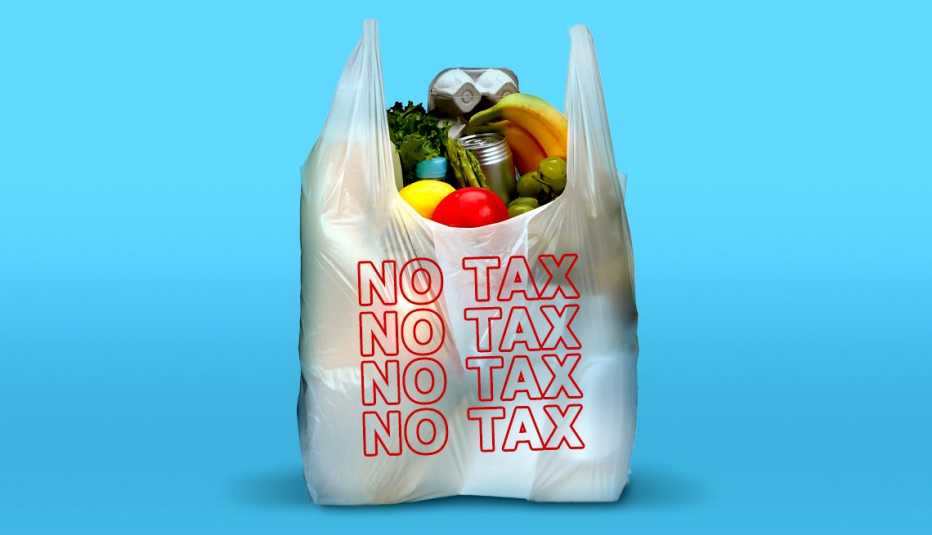AARP Hearing Center


An overwhelming majority of Americans — 86 percent — are frustrated by rising grocery prices, according to a recent survey by marketing and communications firm R.R. Donnelley & Sons. In response, consumers have been changing their shopping habits to stretch their food budgets. But even smart shopping can’t help consumers in some places avoid one cost tied to food: grocery taxes.
Ten states impose a tax on groceries and three allow local governments to tax food (see sidebar). These taxes put additional pressure on households at a time when food prices are up and about 7 million Americans 60 and older face food insecurity and the threat of hunger, according to Feeding America, a nationwide network of food banks. For example, Mississippi taxes food at 7 percent, the highest rate in the nation. A $200 grocery bill there costs an extra $14 in state taxes.
All of the states that charge a grocery tax point to the need for the revenue. “Groceries are a big part of the sales tax. States get a lot of revenue from it,” says Marco Guzman, a senior policy analyst at the Institute on Taxation and Economic Policy. “States considering eliminating the sales tax on groceries have to be mindful of the places to make up that revenue.”
If you live in one of these 10 states, grocery taxes are a part of life.
1. Alabama
Alabama lawmakers reduced the state’s food and grocery tax rate from 4 percent to 3 percent in 2023, a move the Alabama Policy Institute estimated would save residents $152 million in 2024. Local jurisdictions and municipalities can still charge a tax on top of the 3 percent.
The statewide rate will drop to 2 percent if there is enough growth in the state’s Education Trust Fund, according to the Alabama Department of Revenue. State lawmakers are discussing full elimination of the food and grocery tax, says Aidan Davis, state policy director at the Institute on Taxation and Economic Policy.
2. Arkansas
Arkansas Gov. Sarah Huckabee Sanders said in her 2025 State of the State address earlier this year that she plans to work with the legislature to end the state’s grocery tax. Arkansas currently imposes a 0.125 percent tax on food, but you could pay more depending on where you shop because city and county sales taxes may apply. Proceeds from the state’s food tax go to its Conservation Fund.
3. Hawaii
Hawaii is one of the few states that tax groceries at their regular sales tax rate. Hawaii’s general excise tax — essentially a sales tax — is 4 percent, and counties can impose an additional tax of up to 0.5 percent. To offset some of the costs associated with food sold at stores, Hawaii offers a tax credit of up to $220 for households with an adjusted gross income of less than $60,000 in 2024.



































































More From AARP
9 States With No Income Tax
Paychecks and retirement income escape state taxes if you live here
2025 IRS Tax Deadlines You Can’t Afford to Miss
Is Tax Day April 15 this year? When are estimated taxes due? Our federal filing calendar has the answers
These States Don’t Tax Retirement Distributions
Every penny from your nest egg counts when you’re retiredRecommended for You